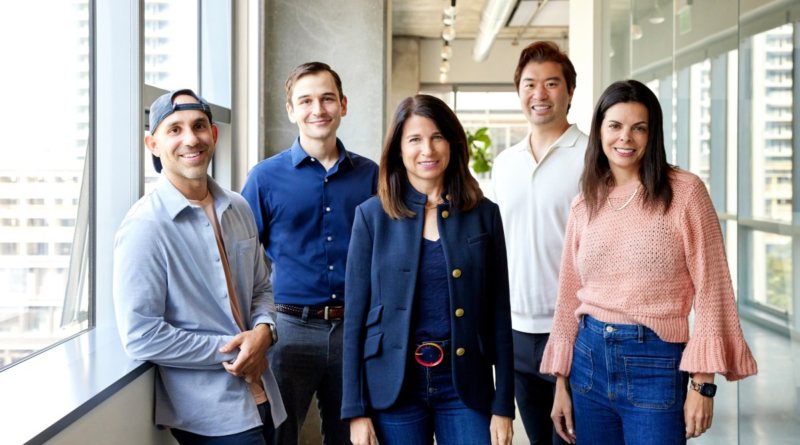Daydream rakes in $50M seed funding to build an AI-powered search engine suited for e-commerce
Online shopping trends are expected to stay strong this year, but e-commerce is more fragmented than ever. With brands selling on so many platforms — from TikTok Shop, to established marketplaces, live shopping, and owned channels — you’d think it would have become easy for shoppers to find what they’re looking for. But that’s not true at all, and shoppers often have to spend a lot of time searching.
To make things worse, search in its current state is no longer effective for shopping, as SEO algorithms and the massive influx of content makes it hard to sift the wheat from the chaff.
But it’s 2024, and if there’s one thing that’s purported to be a solution for almost any problem, it’s AI. It makes sense then that Daydream, a new e-commerce search engine that uses AI to make search more personalized and useful for people, has raised a massive $50 million seed round.
Founded by e-commerce veteran Julie Bornstein, Daydream focuses on providing personalized shopping results by using generative AI, machine learning, and computer vision. The company plans to offer up the platform in beta to consumers in the U.S. this fall, and will concentrate on the fashion vertical for the time being. It has already onboarded more than 2,000 brands, including Net-A-Porter, Altuzarra, Jimmy Choo, Doen, Alo Yoga, and La DoubleJ.
Daydream essentially lets one search for products using natural language and image recognition — think queries like “I’m going to a wedding in Costa Rica in the summer, and I need some suggestions of what to wear.” You can even upload an image of a piece of clothing and provide an additional filter with conversational language, such as “I want this in blue.”
Forerunner Ventures and Index Ventures co-led the round, which also saw participation from Google Ventures and True Ventures. The startup did not disclose its valuation.
A new way to search
Bornstein, who has held executive positions at companies like Nordstrom, Urban Outfitters, Sephora and Stitch Fix, believes that the current search tools available in e-commerce feel dry and aren’t personalized. While she acknowledged that there have been some advances thanks to the rise of Gen AI, she stressed that generalized search engines often don’t give accurate results.
“We’ve trained [consumers] over the last 20 years to figure out the right taxonomic word from our site to find what you’re looking for. When ChatGPT launched, people working in the space for a long time thought that this [tech] allows us to leverage language and images together in a way that allows you to express, as a consumer, what it is you need,” she said.
To fix that, Daydream is fine-tuning off-the-shelf models and creating a detailed dataset of product catalogs combined with the team’s deep understanding of the fashion world. Bornstein believes with this kind of data set, natural language queries could give better results.
For her part, Bornstein realizes that the idea the startup is working on is not unique, and said good execution, tuning good models, and building a great user interface is key for the company to stand out.
Daydream is indeed entering a crowded space. Large companies like Amazon, Google, Mastercard, and TikTok are already employing different kinds of AI tech for their shopping platforms. You also have startups such as True Fit, which focuses on finding the right fit for shoppers, and Remark, which trains AI personas based on human shopping experts. Google has even offered a somewhat similar way to search for a while now, and at a smaller scale, e-commerce startups like Deft and Cherry have tried to combine image and text searches to find relevant items to shop.
Forerunner Ventures’s Kirsten Green believes that Google and Amazon provide uninspired and inefficient search tools for shopping, and that the only personalization offered by many e-commerce companies is in the form of ads. She thinks that Daydream has an opportunity to build special experiences with deep personalization.
“The experience Daydream will deliver reflects the user’s preferences and becomes more and more tailored as detail and pattern recognition grows. It also offers the potential to consider a far wider set of products while still delivering a specialty store experience.” Green told TechCrunch over an email.
Frédérique Dame, general partner at Google Ventures, thinks that Daydream will have an edge in the market because customers expect tailored experiences. She added that the company has an experienced team to tackle all challenges of user adoption.
Fortunately for Daydream, its team does have ample experience in building AI, search tech and e-commerce tools. Bornstein herself sold her last AI-powered shopping service, The Yes, to Pinterest, and her chief product officer, Dan Cary, previously worked at Google’s AI research group. Daydream’s CTO is Matt Fisher, who led data and applied science at Microsoft; its chief commercial officer is Lisa Green, who has worked in tech, fashion, and business development at Google, The Yes, and Condé Nast; and its chief strategy officer is Richard Kim, who was the head of shopping strategy and operations at Pinterest.
Bornstein said that a lot of the fresh capital would be used to hire engineering talent and scale fast. The company currently has 23 employees and plans to increase that number to 35 by the end of the year.
She added that Daydream doesn’t plan to fulfill orders and will act simply as a discovery layer for shopping, so it will rely on commission-based revenue at the moment and is not looking to generate any ad-based revenue. Also, because it’s a discovery layer, white-labeling its technology, like visual fashion-focused search company Stye, is a possibility down the road.




